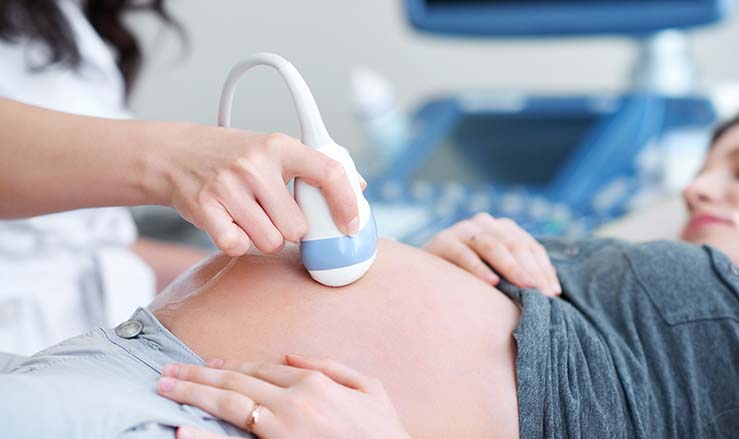What is the Combined First Trimester Screen?
The Combined First Trimester Screen is an ultrasound and biochemical based test designed to provide an individual risk assessment of your pregnancy for fetal chromosomal problems.
Chromosomes contain the DNA, which determines our genetic makeup. In humans each cell in our body contains 46 chromosomes, made up of 23 individual pairs, one of each pair derived from the mother and father. Our chromosomal makeup is determined at the time of conception and cannot be altered.
Occasionally a baby may receive too many or too few chromosomes at conception (this is termed “aneuploidy”), or portions of the chromosomes may be rearranged (this is known as “translocation”). Such events usually cause significant problems in the baby, leading to spontaneous miscarriage or birth defects (for example abnormalities of the structure of the heart or brain).
The most frequent chromosome abnormalities include conditions such as Down Syndrome (Trisomy 21) in which the baby has 47 chromosomes in each cell in its body due to an extra number 21 chromosome; Turner Syndrome (Monosomy X) in which the baby has only 45 chromosomes in each cell in its body, the missing chromosome being one of the sex chromosomes; Edward Syndrome (Trisomy 18) in which the fetus has an extra number 18 chromosome in each cell in the body and Patau Syndrome (Trisomy 13) in which the fetus has an extra number 13 chromosome in each cell in the body.
What does the First Trimester Screening test involve?
The combined First Trimester Screening test has two separate components:
- A blood test, ideally taken at 10 weeks gestation. This blood test measures the level of two fetoplacental hormones – Free βhCG and PAPP-A
- An ultrasound examination performed at 12-13 weeks gestation. This scan measures the nuchal translucency, which is a small echo free space at the back of the baby’s neck. The larger the nuchal translucency measurement the higher the chance that there is a problem with the baby (e.g. Down syndrome or a structural heart defect).
By combining maternal age, the results of the blood test and the ultrasound, each woman can be provided with a risk of their pregnancy being affected by a chromosomal disorder such as Down syndrome. The test does not tell you that your pregnancy does or does not have this condition it merely provides you with the likelihood of your pregnancy having the condition.
For women whose pregnancies screen at increased risk, Non-Invasive Prenatal Testing (NIPT) or even possibly invasive diagnostic testing is required to determine if the baby is affected (Chorionic Villus Sampling or amniocentesis).
When will I get results?
Generally, results will be given to you on the day of the ultrasound. A report will be given to you and a copy will be sent to your doctor.
For further information visit:
Genetic Health Queensland at: www.health.qld.gov.au/rbwh/services/ghq.asp
Down Syndrome Association of Qld at: www.dsaq.org.au
Queensland Centre for Mothers and Babies at: www.qcmb.org.au
Centre for Genetics Education at: www.genetics.edu.au

